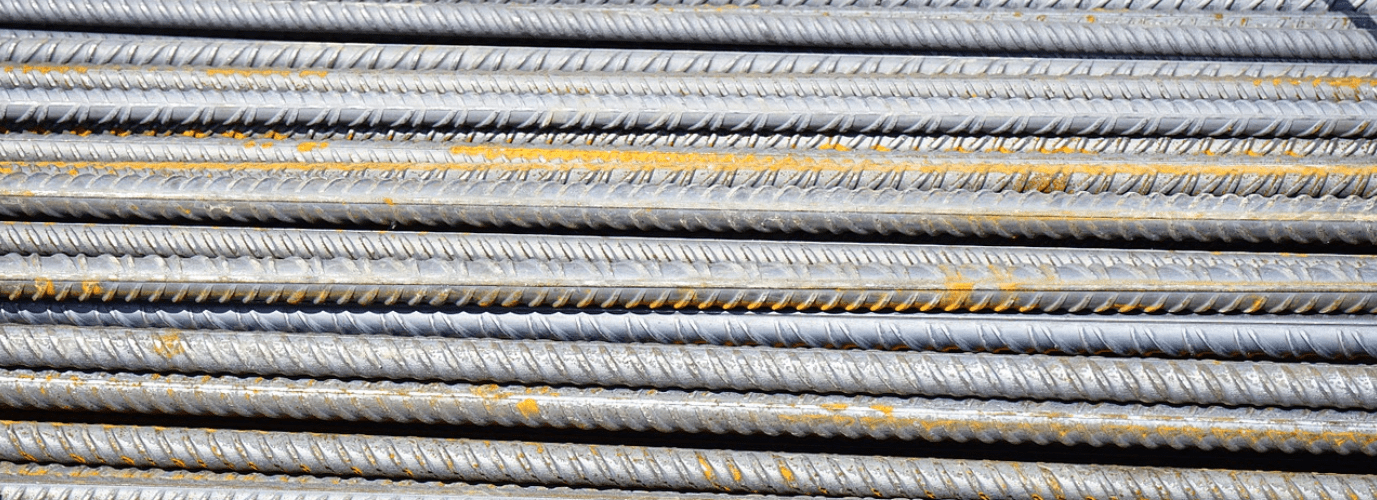Have you thought of investing in mobile home parks? It can be a surprisingly lucrative field of business. And right now, there is a prime window of opportunity available to get a slice of the action for yourself. However, it’s vital that you go into it having some idea of the risks and opportunities. You should also know what problems you can expect to deal with when investing in mobile home parks

In this article, we highlight risks from across the spectrum of mobile home park investing. We’ll try to show you how to overcome them or put them into an accurate perspective.
The threat of mobile home park investing
Whether you believe in it or not, many people still hold on to the American dream. That means a happy family, making a living the way you want, and owning your own “home with a white picket fence.” To most people, this still translates as a traditional stick-built home.
If given a choice, most will opt for real estate above a manufactured home. Much of the motivation for this choice will be subjective feelings. However, there are other good reasons, for example, the appreciation of real estate value over time.
This means that you should be wary of the real estate market wherever you operate or plan to own a park. Competing directly with real estate in the same price bracket will not to end well unless your park has some significant benefit in the form of location, amenities, etc.
It’s better to stay with your massive advantage of delivering a real community feel in a real home. Additionally, you’ll gain a higher advantage because it’s almost half the price of any real estate.
Bad tenants
We’ve all heard the horror stories of landlords and property managers that have bad tenants. The law rightfully offers some protection to tenants. Unfortunately, getting rid of a bad tenant might be almost impossible.
Actually, the law is pretty clear. It’s just enforcing it that can be difficult. Understandably, it’s hard to physically evict someone, along with all their possessions, from home.
It’s fair to say that one of first-time mobile home park investors biggest concerns is the tenants. Whether fair or not, there is a certain stigma surrounding mobile home parks and their inhabitants that is less than sterling. It’s this same perception that contributes to the overall negative stereotyping of mobile home parks as unsavory places.
What also adds to this is the fact that mobile home parks are “affordable housing.” Naturally, concerns arise residents’ solubility and how reliable they are when it comes to paying rent.
These concerns are well-founded when dealing with lower income families. Not necessarily because they are irresponsible or unreliable, only that they are more vulnerable to economic setbacks.
Why mobile home tenants aren’t so bad
It’s important to view mobile home parks within the socio-economic circumstances of present-day America. We live in a time where housing costs have risen above the affordability line according to the income of almost 40% of U.S. citizens.

Almost 40% of retirees don’t have enough saved up for retirement according to government recommendations.
It’s actually for this reason that mobile home park tenants can be such an asset. They are very loyal as most simply cannot afford real estate. Others are unwilling to part with such a large part of their income to buy it. Also, once people have a great experience living in a mobile home park community, they hesitate to exchange it for something at almost double the price.
It’s important to realize that there is a vast spectrum of mobile home parks. They are no longer the dreary, uniform communities of the past. You get parks that cater to people across a variety of financial spectrums and according to different needs. To give you a taste, just take a look at these ten luxury mobile home parks around the world.
Natural disasters
The best advice if you live in a mobile home park and a hurricane or tornado is on its way: Get out and get as far away as possible. Quite understandably, mobile homes do not offer much protection against the most extreme conditions. Even traditional homes have a hard time standing up to these incredible forces of nature.
We are all too familiar with the horrifying images of building rubble and materials strewn chaotically across the ground. The aftermath of one of these events can be quite horrible. Manufactured housing is particularly susceptible because of their more lightweight materials. It doesn’t help that they are usually longer than they are wide.
This has led to the ridiculous stereotype that mobile homes are “tornado magnets.” This could be blamed on two factors. First, slightly-biased media coverage tends to highlight areas with the most visible damage. Second, areas with a high manufactured home density happen to be areas where these disasters occur. South Carolina, Texas, and Florida are just some examples.
Regardless of the stereotype, you should always be aware of the weather conditions. Know the risk of these types of natural disasters if you plan to invest in a park there. Even if your park isn’t in one of these danger zones, the homes within the park should always be appropriately zoned for the weather and wind conditions.
These types of events have the potential to flatten a mobile home park entirely. They need to be taken seriously. Keep in mind that it may be difficult to obtain insurance if the park is in an area that’s at risk. It’s worthwhile to invest in insurance for your park even if it is protection from freak occurrences.
Defunct housing
Unfortunately, unlike real estate, mobile homes do have a shelf life. They have much lighter and less expensive materials which need to be taken care of and maintained to stay in decent condition. Time will also inevitably take its toll as homes move and expand/shrink with time and the changing of seasons.

Manufacturers usually guarantee mobile homes for 20+ years. And in reality, they last for closer to 50+. Some newer mobile homes that have the latest safety standards in mind and are of the highest quality can last over 100 years if they receive proper care.
However, it’s vital to keep in mind that mobile homes have only in the most recent decades undergone a surge in quality and safety. Much of it is due to the HUD code (or, Manufactured Home Construction and Safety Standards). This is a federally mandated code according to which all manufacturers make their houses. It began in 1976 and has had major rewrites or updates since.
A mobile home that doesn’t meet the standards of the HUD code (or pre-dates it) will have a significantly lower value and isn’t eligible for most types of financing.
In a real estate development, you can be sure of the structural integrity of the homes. You need to be more careful when it comes to mobile home parks. Each house on the property should receive an assessment of its condition, adherence to the HUD code, and its age. Without an inspection, you won’t know the actual value of your park or its capacity to create profits.
Man-made disasters
There is no doubt that the safety standards of mobile homes have increased dramatically over recent times. Their fire safety is now comparable to that of traditional forms of housing. The reason for this is that the old, pre-176 mobile homes had very lax standards that led to multiple fatal incidents involving home fires. This is one of the areas the HUD code focuses on most.
Today, manufacturers have strict guidelines to follow when building their homes. Approved materials must have a certain level of fire resistance. Provisions should also be made regarding fire alarms, exit routes within the home, and egress doors. There are other guidelines set out in the HUD code and the NFPA 501 standards that homeowners should follow.
Although significantly reduced, the risk of a fire breaking out in a mobile home and spreading throughout the park is still there. It’s a potentially fatal hazard that can also damage your investment. Not only will fire damage or destroy park property, but it will forever taint its image and contribute to the stereotypes surrounding mobile home parks.
So, whatever inspection of homes you undertake before purchasing or investing in a park, you should make a fire safety inspection part of it. Your parks, or the parks you invest in, should take safety very seriously.
You can’t control everything that your inhabitants do within your park, but providing safe housing that meets modern standards is a start.

Illegally investing in mobile homes/parks
If you invest in whole mobile home parks, this shouldn’t be a problem for you. However, if you purchase mobile homes inside of mobile home parks, you may need to apply for a mobile home dealer license. The criteria for when you must apply for this license, the requirements you must meet to be eligible, and the terms of it differ from state to state.
The state usually determines how many mobile homes you can buy and sell for profit per year. It’s usually also only applicable to mobile homes within parks and not on private property. Generally, you must apply for a license once you buy and sell over a certain number of mobile homes per year. Here, BiggerPockets provide a handy list of states with their requirement.
How smart investors run successful mobile home parks
To end our article, we just want to give you a few final tips on how to be a successful mobile home park investor. These are additional basic decisions you need to make or ideas you can use to maximize your profits and minimize your risk:
1. Decide at what level you want to invest
You might be surprised to know that the mobile home investing market is mature enough to offer a range of levels of involvement. Do you want to own and manage a park? Perhaps own it and hire a manager? Maybe you’re simply wanting to invest in a professional portfolio consisting (or incorporating) these parks?
2. Create a mobile home park business plan
If you plan on investing in your own mobile home park, it’s strongly advised that you create a business plan for your own use. Just as with any business opportunity or endeavor that involves financing, a business plan will keep your park moving in the right direction. You’ll be able to identify key milestones that relate to your success.
3. Read mobile home park success (and failure) stories
If you spend some time looking, you will be able to find very useful and insightful mobile home park success stories. These first-person perspectives will give you a unique insight into what unexpected challenges you could face, and how to overcome them.
4. Fix up the park
As we mentioned, you get all sorts of people living in mobile home parks. You would be surprised how much a park with an upgraded look or with attractive amenities can improve your park’s prospects. It will help you justify rent increases as well as attract more tenants.
5. Hire an experienced manager
Not everyone is cut out to be a landlord. Not only does it require good interpersonal skills, you need to know how to be tough when necessary. Additionally, it’s a full-time job that will swallow up your time in unexpected ways. If you don’t have either of these on your side, a dedicated landlord or manager is worth the money. Here are some tips to help you find the right manager.
So, what are you waiting for?
The time for mobile home park investing is now! The market is still ripe and has plenty to offer anyone willing to take on something a little different at moderate risk. We hope you understand the risks of mobile home investing and get the proper perspective to see that it’s not bad at all. An informed investor is a happy investor.


